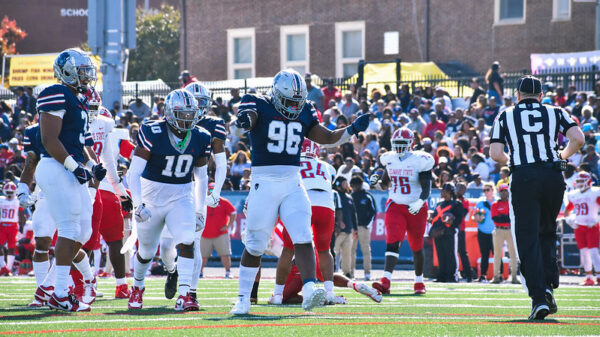
The Biden Administration recently struck a deal between Bavarian Nordic, a Danish vaccine company, and Grand River Aseptic Manufacturing Inc. (GRAM), a Michigan-based manufacturing organization, to accelerate their response to monkeypox, an infectious disease that the Center for Disease Control and Prevention (CDC) reported has impacted almost 17,000 Americans this year.
As of Aug. 29, the Department of Health and Human Services (HHS) announced in a press release that they’d be contributing $11 million to the efforts.
The deal consists of Bavarian Nordic providing the JYNNEOS vaccine order and GRAM filling and finishing the vaccine in the U.S. According to a statement released by the vaccine maker, they hope to finish the vials within three months, even though the process usually takes up to nine months. This, according to HHS, is the first fill and finish line, the process of filling vials with vaccine and finishing their packaging to be distributed, for JYNNEOS in the United States.
Executives, such as Bob Fenton, the coordinator of the White House National Monkeypox Response, stressed the significance of this partnership.
“This partnership between Bavarian Nordic and GRAM will significantly increase the capacity to fill and finish government-owned doses- for the first time in the U.S.- and allow us to deliver our current and future supply more quickly to locations nationwide,” Fenton said in a statement.
HHS just made an additional 1.8 million vaccines available for ordering by jurisdictions. Other efforts by the Biden Administration include providing easier access to testing sites and ensuring those at risk are prioritized. Additionally, they’ve partnered with several states in providing tests at local events such as the Charlotte Pride Festival & Parade in North Carolina.
This isn’t the first time Bavarian Nordic has worked with the U.S. government. In 2003, the company manufactured and supplied smallpox vaccines to the country. To date, the company has supplied almost 30 million doses of the vaccine.
Dr. Gina Spivey-Brown, the dean of the College of Nursing and Allied Health Sciences, hopes those with hesitancy are aware that, unlike the covid-19 vaccine, the vaccine used for monkeypox is not new.
“This is not a super new vaccine. All they’re doing is looking at the variant and kind of running behind it and tweaking a vaccine that already exists to address monkeypox. So they are saying we already have some technology. We are going to use this technology specific to monkeypox,” Dean Spivey-Brown said.
Some students, like junior political science major Cavell Williams, believe that the Bavarian Nordic vaccine will benefit the U.S. efforts in preventing the spread of monkeypox. Others, like freshman political science major Keldon Morgan, believe more education on disease prevention is necessary.
“I feel like more education as far as disease prevention and sex education would help slow the spread,” Morgan said.
Identifying as a bisexual male, Morgan says he is limiting his sexual partners, washing his hands frequently and making sure he’s aware of contact tracing.
Monkeypox is a viral disease that can be spread through skin-to-skin contact, objects and respiratory seepage. Direct contact can include hugging, kissing, or any sexual activity. For more information, visit CDC.gov.
Copy edited by Jadyn Barnett

















